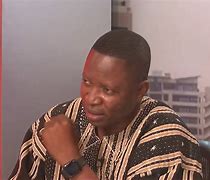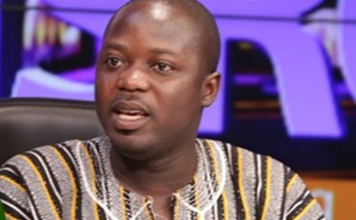
The Speaker of Parliament Alban Bagbin has served notice to drag President Nana Addo Dankwa Akufo-Addo to court for refusing to sign the Witchcraft and the Armed Forces Bills.
The Speaker argued that it does not rest with the president to conclude that parliament acted unconstitutionally in approving the bills for which he is refusing to sign. It is for the Supreme Court to determine whether the legislature acted ultra vires in passing the two bills, he added.
“The determination of any unconstitutionality is the sole purview of the Supreme Court, not the President. Hence, if there were concerns about Parliament acting beyond its constitutional authority, i.e., acting ultra vires, the appropriate course of action would be an action before the Supreme Court, not an executive declaration of unconstitutionality.
“Again, the constitutional discretion vested in the presiding officer of Parliament, as per Article 108 and subject to Article 296, suggests that any allegations of misuse of this discretion should be contested in a court of competent jurisdiction, rather than being pre-emptively adjudicated upon by the President,” he said at a function in Accra on Thursday, January 11.
The bills are; Criminal Offences (Amendment) Bill, 2023, Criminal Offences (Amendment) (No.2) Bill, 2023, and Armed Forces (Amendment) Bill, 2023.
Speaker Bagbin indicated that the President’s decision not to sign the three private member’s bills demonstrated his misunderstanding of the constitutional processes in the country.
“Absence of a judicial determination from the Supreme Court, the President’s unilateral assessment of unconstitutionality does not hold legal water. It is a departure from the established legal procedure, norms, and practices that govern our constitutional democracy.
“The appropriate lawful response if there were genuine concerns about the constitutionality of the legislative action of this house would have been to seek judicial review from the Supreme Court.”
Madina lawmaker Francis Xavier Sosu who sponsored the bills also accused President Akufo-Addo of acting unconstitutionally for not signing the three bills.
“I think the president is acting unconstitutionally and it is the role of the speaker to tell the president in his face that he is acting unconstitutionally.
“Since the bill got passed in July this year we have over five people who have already been killed again on account of witcraft accusations,” he said.
President Akufo-Addo while notifying Parliament of his inability to assent to the Criminal Offences Amendment Bill 2022, raised constitutional matters regarding the Bills.
In the letter he wrote to Parliament “I am writing to you in reference to our meeting held on the 28th of November, 2023 at my office where we discussed the outstanding bills presented for assent namely; the Criminal Offenses Amendment Bill 2023, Criminal Offences Amendment number 2 Bill 2023, and the Armed Forces Amendment Bill 2023.
“During our conversation, I raised specific constitutional concerns regarding these bills related to Article 108 of the Constitution, particularly the nature of these bills which were introduced into Parliament as private members’ bills rather than being presented by me or on my behalf….”
“As I indicated the content of these bills have my support, but we need to ensure that they are enacted in line with established constitutional and legislative process. After thorough consideration and in light of the constitutional issue I pointed out during our meeting, I am unable to assent to these bills.
“The concerns raised are significant and have profound implications for the constitutional integrity of these legislative actions. Any legislation we pass must be in complete alignment with the provisions of our Constitution. I intend to have these bills reintroduced in Parliament on my behalf in due course,” he added.
Regarding the Ghana Armed Forces Amendment Bill, President Akufo-Addo, in the letter indicated his inability to sign after citing financial implications on the state’s Consolidated Fund and potential breaches of Article 108 of the Constitution as reasons for his refusal.




